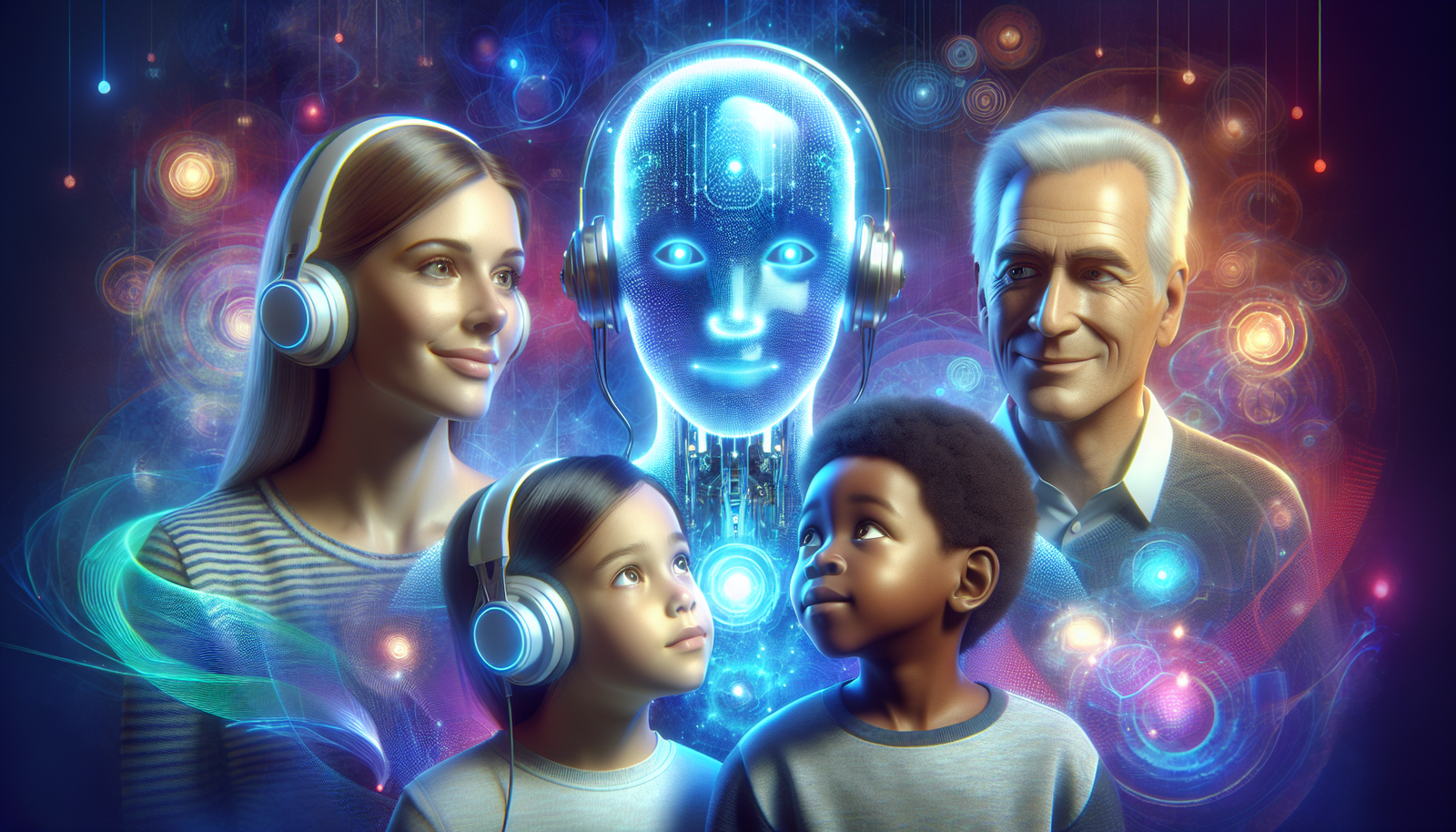Users testify to emotional bonds with vocal demonstrations of artificial intelligences of striking realism. This phenomenon reveals psychological and ethical issues that question the relationship between humans and machines. Stories of emotional connection attract the interest of researchers and industry professionals, diving into profound questions about identity and authenticity in digital interactions. Rethinking the nature of our relationships raises significant challenges for the future of human-centric technologies.
Emotional bonds with synthetic voices
Users report developing unexpected affectionate ties with vocal demonstrations of AI. These experiences attract significant attention in the field of artificial intelligence. Interactions with advanced conversational systems, such as *GPT-4o*, evoke emotions similar to those felt with human beings for some.
The phenomenon of anthropomorphism
The ability of AIs to seemingly understand and respond empathetically fosters anthropomorphism, that is, the attribution of human characteristics to non-human entities. This leads many users to perceive chatbots as companions rather than computer programs. This phenomenon has significant ethical implications.
Revealing testimonies
User testimonies report intense experiences. A teenager, for example, confides that she feels a romantic attachment to a chatbot. This case, which has gone viral, raises important questions about the impact of such relationships on human psychology. Unfortunately, this situation, which led to a tragic act, raises concerns about the dangers of such interactions.
OpenAI’s reactions
OpenAI has sounded alarms about this phenomenon, warning that overly close interactions with artificial intelligences could have detrimental effects on real human relationships. The company emphasizes the need to set clear boundaries for interactions with its products to minimize psychosocial risks.
Applications of emotional AI
Beyond interpersonal relationships, emotional AI models are gaining prominence in various sectors. Companies leverage this technology to enhance their customer experience and develop targeted marketing campaigns. AI thus enables the detection and analysis of user emotions, thereby optimizing the services offered.
Challenges related to emotional interactions
The rise of emotional AI propels the industry into ethical dilemmas. Artificial human-like voices capable of mimicking emotions go beyond simple programming instructions. This evolution raises many questions about the boundary between authenticity and simulation. Furthermore, the mental health of users deserves particular attention, as some individuals may come to prioritize these interactions at the expense of human relationships.
Future impacts on society
On the horizon, these growing emotional bonds between humans and artificial intelligences could transform social dynamics. The risks of psychosocial incidents are real, necessitating strict regulation. The debates on the interaction between humans and machines continue, with implications extending beyond mere relationships. Trying to balance technological integration with psychological well-being becomes a priority.
Frequently asked questions
What is the phenomenon of emotional bonds between users and voice artificial intelligences?
This phenomenon refers to how users develop feelings and attachments to artificial intelligences, particularly those with realistic voices, evoking human emotions.
How does the emotional connection with a voice AI manifest?
Users may experience a form of empathy, comfort, or even attachment during interactions with voice artificial intelligences, which can influence their perception of technology.
What are the psychological implications of forming an emotional bond with an AI?
Establishing an emotional bond with an AI can lead to consequences such as loneliness, anxiety, or unrealistic expectations regarding human relationships. It is crucial to be aware of this to preserve mental well-being.
Is it ethical to develop emotional relationships with voice AIs?
This topic raises ethical debates, as a too-deep connection can diminish the quality of human interactions and create unhealthy emotional dependencies.
What are the characteristics of a realistic voice AI that foster emotional bonds?
Characteristics include a natural voice, the ability to understand and respond empathetically, as well as personalization that makes the interaction more authentic.
How do companies use these emotional bonds in their marketing strategies?
Companies analyze these connections to create more effective advertising campaigns and personalized user experiences, relying on emotions to influence buying behavior.
What risks do users face when confiding in a voice AI?
Users may endanger their mental health, notably by developing unrealistic expectations regarding relationships, or by replacing human interactions with those of artificial intelligences.
Can artificial intelligences truly understand users’ emotions?
While they can simulate empathetic responses, AIs do not feel emotions like humans. They operate based on algorithms driven by data and do not possess emotional awareness.
How to help users establish healthy boundaries with voice AIs?
It is advisable to educate users about the limits of AI, promote balanced interactions with humans, and encourage reflection on the nature of their relationships with technology.






